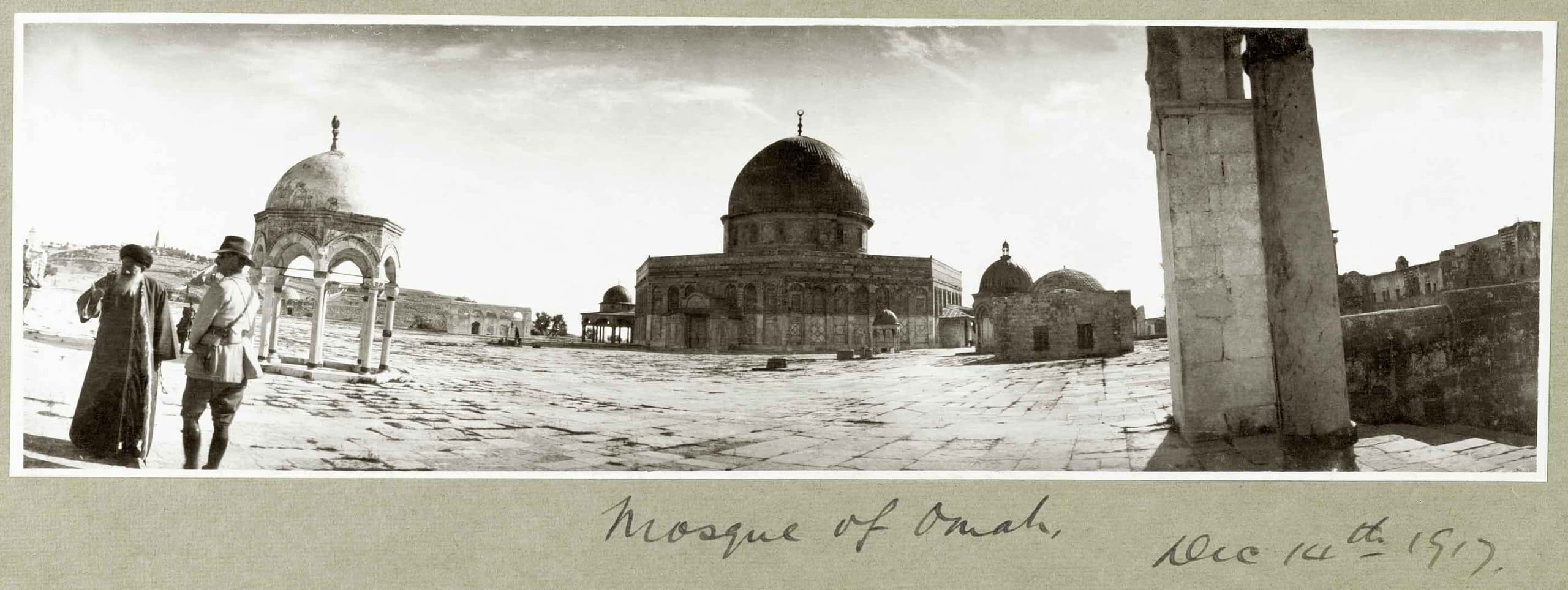Written by Felicity Cobbing, Yasmeen Elkhoudary and Avantika Clark
As historians, we utilise various resources to conduct our research – none as important as the archives we dig around in for those all important “primary sources”. But archives are not neutral spaces. We asked the Palestine Exploration Fund to share with us the way in which they are approaching the idea of decolonisation and what it means for an institution with a colonial history.
The Palestine Exploration Fund was founded in 1865 by a group of British clergymen, soldiers, scientists and politicians, for the purpose of exploring and mapping the Holy Land, with particular, though not exclusive, reference to biblical history and information. Over the course of its history, the PEF was associated with many people from religious, military, scientific and academic backgrounds. Among others, it employed the young H. H. Kitchener (yes that Kitchener) and T.E. Lawrence (yes that Lawrence). Its patron was, until the late twentieth century, the reigning British monarch. It is by anyone’s reckoning the very epitome of a colonial organisation, despite receiving no government funding, and replying entirely on its own subscriptions and donations.
That it comes with a hefty amount of colonial baggage is not something we deny. It is rather something we wish to explore and understand better as part of an ongoing process of decolonisation. For several decades the PEF has been subject to quite a bit of scrutiny precisely because of its obvious colonial credentials. Several academics have written about the PEF’s strategic and political usefulness, operating in a part of the world Britain was increasingly interested in and entangled with. Additionally, we recognise that those who worked in the field on our behalf all brought with them to a greater or lesser degree the prejudices of their age and upbringings. This had a huge influence on their interactions with the local population, and on the development and practice of subjects like archaeology, geography, and ethnography. It also had implications for how others outside of these disciplines viewed the region and its inhabitants. Fortunately, the PEF has an extensive and unique archive and the exploration of these topics is a rewarding and growing field of research.
It’s very early days, but our aim is not only to be open and honest, but to actively seek to change structures which have prohibited some people from engaging with us in the past. We know we’ve got a lot of work to do across many areas of our activities – from publishing to field work, to caring for our collections and making them accessible, to how we welcome people into our building (COVID-willing). In fact, the first ever audio-visual exhibit which we are developing at our museum is called “Local Heroes”, and it celebrates the work of diverse Palestinians who worked with the PEF across the years. We have also funded the Badè Museum at Pacific School of Religion’s web exhibition, “Unsilencing the Archives: The Labourers of the Tell en-Nasbeh Excavations”, with the same goal in mind. However, some changes might not be as visible initially as work behind the scenes continues, but we are working on it. We will undoubtedly make mistakes, but we hope that overall, the results will be positive.
Decolonising isn’t just about self-analysis and awareness, or of responding to other’s research about the organisation. It’s also about how we now behave in our structures and professional relationships, and how we engage with wider audiences. So, we are embarking on a decolonising process – and it is a process – probably one which will be a permanent feature of our organisation.
The Palestine Exploration Fund is a non-political and non-religious registered charity and archaeological society established in 1865 for the scientific and academic study of the cultural and natural heritage of Palestine and the Levant. It is the oldest society of its kind in the world and promotes research into the archaeology, history, culture, geology, natural history and sciences of this region of the Middle East. Its headquarters in Greenwich, London, house a unique archive and collection which are an invaluable resource for researchers, and through a small museum, offer a chance for the public to learn more about this fascinating region and our work there.
Felicity Cobbing is the CEO and Curator of the PEF. Her role is running the PEF on a daily basis, co-ordinating other staff, projects, researchers and conducting her own research into the PEF and associated subjects. Yasmeen Elkhoudary is the Digital Media Officer at the PEF. She creates and shares content for the PEF’s social media platforms and blog, as well as helping Felicity manage the PEF website. Avantika Clark is the Collections Assistant at the PEF. She works with Felicity in managing and documenting the collections, co-ordinating the volunteer and intern programme, and developing outreach and engagement.
This blog post appears as part of a special issue guest-edited by Anne Caldwell.
Image Credit: Panoramic photograph of the Dome of the Rock (Mosque of Omar), Haram al-Sharif, Jerusalem. Capt. Arthur Rhodes, 1917 (PEF-P-RHODES-111) by the Palestine Exploration Fund. Licence: CC BY 2.0

